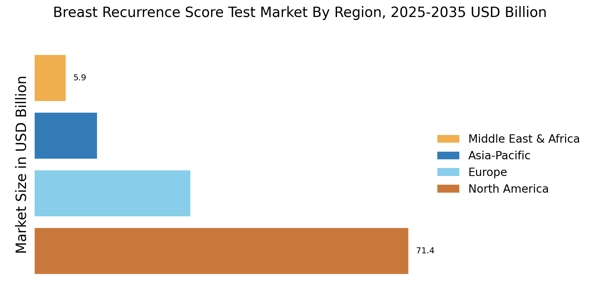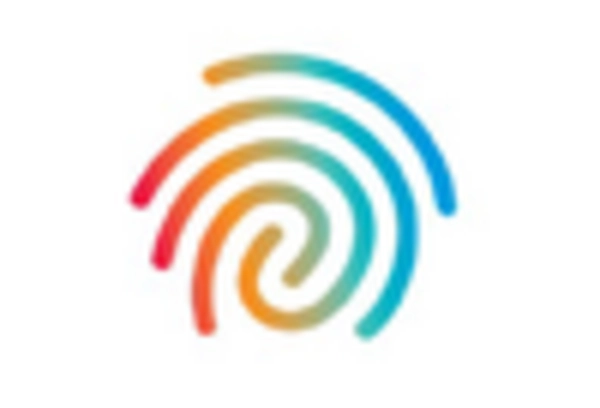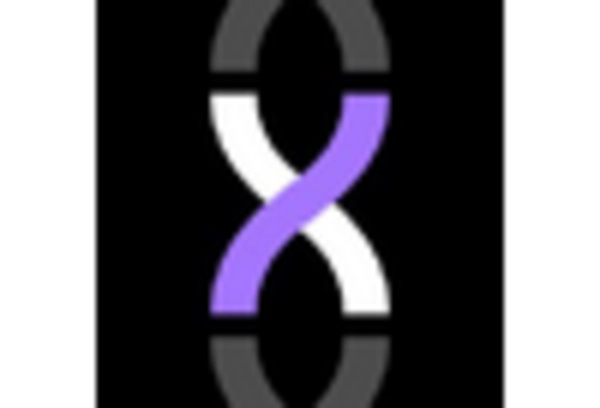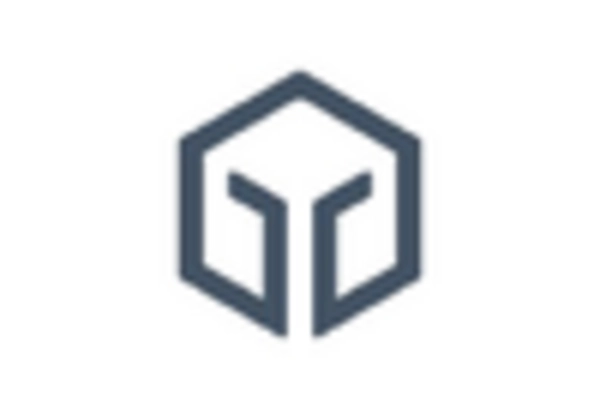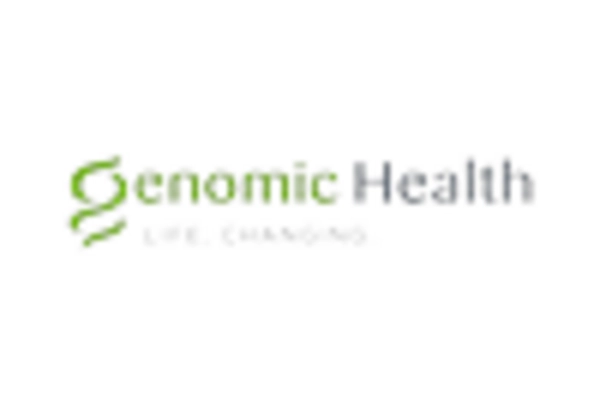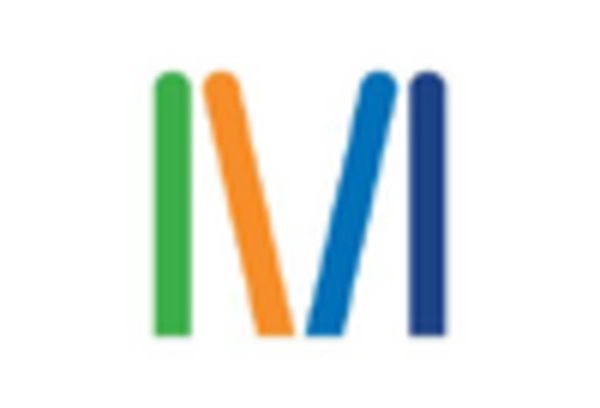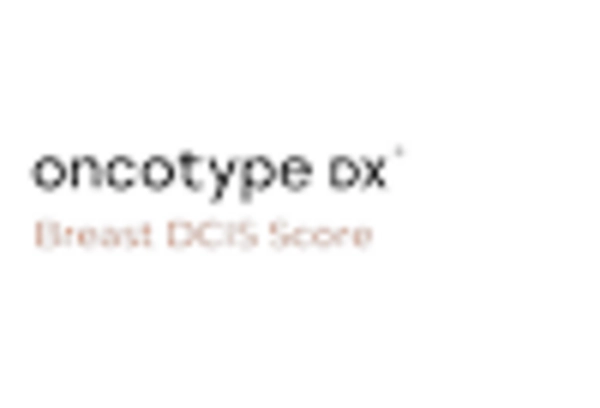Rising Healthcare Expenditure
The increase in healthcare expenditure across various regions is a notable driver for the Breast Recurrence Score Test Market. As healthcare budgets expand, there is a greater allocation of resources towards advanced diagnostic tools, including recurrence score tests. This trend is particularly evident in developed economies, where healthcare systems are investing in innovative technologies to improve cancer care. The rising expenditure facilitates broader access to these tests, allowing more patients to benefit from personalized treatment strategies. Consequently, the market is likely to experience growth as healthcare providers seek to enhance diagnostic accuracy and treatment efficacy through the adoption of breast recurrence score tests.
Advancements in Genomic Testing
Technological innovations in genomic testing are significantly influencing the Breast Recurrence Score Test Market. The development of more precise and reliable testing methodologies has enhanced the accuracy of recurrence predictions. For instance, the introduction of next-generation sequencing technologies has allowed for a deeper understanding of tumor biology, leading to more personalized treatment approaches. As a result, the market for breast recurrence score tests is projected to grow, with estimates suggesting a compound annual growth rate of over 10% in the coming years. These advancements not only improve patient stratification but also facilitate the identification of patients who may benefit from adjuvant therapies, thereby driving market expansion.
Increasing Incidence of Breast Cancer
The rising incidence of breast cancer is a pivotal driver for the Breast Recurrence Score Test Market. As more individuals are diagnosed with breast cancer, the demand for effective prognostic tools increases. According to recent statistics, breast cancer remains one of the most prevalent cancers among women, with an estimated 2.3 million new cases reported annually. This growing patient population necessitates the use of recurrence score tests to tailor treatment plans effectively. The Breast Recurrence Score Test Market provides critical insights into the likelihood of cancer recurrence, thereby influencing treatment decisions. Consequently, healthcare providers are increasingly adopting these tests to enhance patient outcomes, which in turn propels the market forward.
Growing Emphasis on Personalized Medicine
The shift towards personalized medicine is a crucial factor propelling the Breast Recurrence Score Test Market. As healthcare systems increasingly prioritize individualized treatment plans, the role of recurrence score tests becomes more pronounced. These tests enable oncologists to assess the risk of recurrence on a patient-by-patient basis, allowing for tailored therapeutic strategies. The market is witnessing a surge in demand as healthcare providers recognize the importance of personalized approaches in improving patient outcomes. Furthermore, studies indicate that patients receiving personalized treatment based on recurrence scores experience better survival rates, which further underscores the necessity of these tests in contemporary oncology.
Integration of Tests into Treatment Protocols
The incorporation of breast recurrence score tests into established treatment protocols is a significant driver for the Breast Recurrence Score Test Market. Clinical guidelines increasingly recommend these tests for patients with early-stage breast cancer, thereby enhancing their adoption in clinical practice. This integration is supported by evidence demonstrating that recurrence score results can effectively guide treatment decisions, such as the necessity for chemotherapy. As healthcare providers align their practices with these guidelines, the market for recurrence score tests is expected to expand. The alignment of clinical protocols with testing methodologies not only improves patient care but also solidifies the role of these tests in standard oncology practices.



